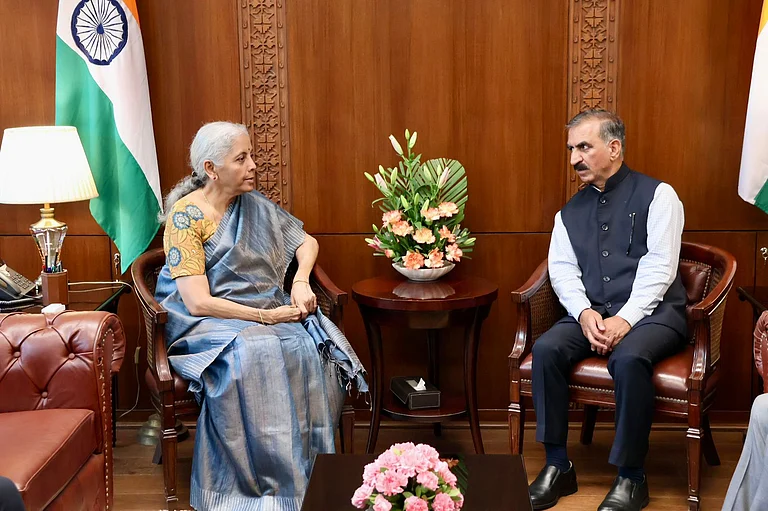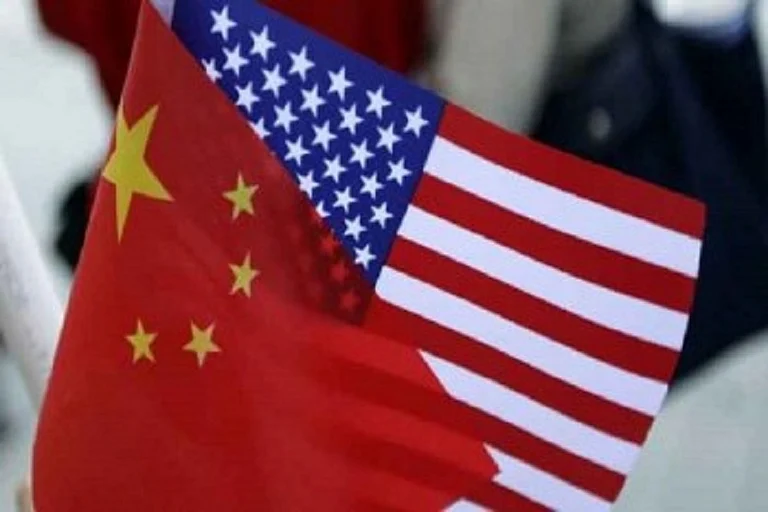
China’s GDP grew just 4.8% this quarter — its weakest pace since late 2024 — amid US trade tensions and sluggish domestic demand.
Xi’s sweeping anti-corruption drive saw two top generals and seven senior officers expelled ahead of the plenum, fuelling speculation of a military purge.
The meeting will chart the 15th Five-Year Plan, addressing economic recovery, job creation, and China’s strategy amid shifting global power dynamics.
China's ruling Communist Party held a crucial meeting on Monday to finalise a new five-year plan amid worries about a broad purge at the top of the military and an economic downturn fuelled by US trade disputes.
President Xi Jinping led the Chinese Communist Party in the opening of the three-day plenary session, which is seen as the most significant given the current state of strategic confrontation with the United States. China's GDP grew at the weakest rate this year compared to the previous quarters, at 4.8 per cent, according to figures released on Monday.
The escalating trade dispute over the tariff war started by US President Donald Trump, which has slowed China's exports to America, one of its main customers, was blamed for the slowing of the second-largest economy in the world.
This quarter's data showed the slowest growth rate since 2024's third quarter.
According to data issued by the National Bureau of Statistics (NBS) on Monday, the economy slowed from a 5.2 per cent growth rate in the previous quarter but was still very near to the stated yearly objective of 5 per cent GDP for this year.
The CPC was concerned about the downturn because it would exacerbate the already high unemployment rate, particularly among young people, which was estimated to be above 20 per cent.
According to official media, Monday marked the start of the plenary session of the 20th Central Committee of the CPC, which has 370 members.
President Xi Jinping, who is also the General Secretary of the party, delivered a work report and expounded on the Party leadership's draft proposals for the formulation of the 15th Five-Year Plan (2026-2030) for national economic and social development, state-run Xinhua news agency reported.
Besides the prevailing economic situation, the new five-year plan, the high-powered body, also called plenum, with party leaders from across the country, is expected to discuss the shifting global strategic environment with Trump's efforts to expand the US global leadership, challenging China’s influence, especially in the global south.
The closed-door plenary session, being held in Beijing from October 20-23, will discuss major issues related to the formulation of the 15th Five-Year Plan (2026-2030) for national economic and social development, according to an earlier official announcement.
The ongoing economic slowdown with stagnant domestic demand, the surplus capacity of new productive forces, particularly the large-scale production of e-vehicles, and the effects of Trump's tariffs and export restrictions on them were all expected to be discussed in the new five-year plan.
Since the unemployment rate is continuously rising, which worries the CPC leadership, the five-year plan's main goal was to increase growth in order to concentrate on job creation.
Ahead of the plenary session, Chinese President Xi Jinping intensified his broad anti-corruption campaign in the military by dismissing two senior generals and seven other high-ranking officials, which sparked rumours of a purge within the party.
The CPC retains overall control of the military whose top brass are part of the influential bodies of the party.
Last week, the second ranking General of the military He Weidong, who is also a member of the Political Bureau the top decision making body of the CPC and Vice chairman of the Central Military Commission (CMC) the overall high command of the Chinese military, have been expelled from the CPC and military service along with Miao Hua, who is also a CMC member.
A spokesperson of the Chinese Defence Ministry, Col Zhang Xiaogang, said that besides the two top Generals, seven former senior military officials have also been expelled from the CPC and military.
Three-star generals with important military positions were among the seven people who were expelled.
According to Zhang, investigations revealed that the military officers were suspected of significant crimes relating to their duties and had committed serious violations of party discipline and corruption.
During the plenary session, new military officials were supposed to take their place.
Critics claim that Xi's huge crackdown on corruption and indiscipline, which resulted in the punishment of over a million officials and dozens of high military officers, helped him solidify his hold on power inside both the party and the military throughout his 12 years in power.
Three-star generals with important military positions were among the seven people who were expelled.
According to Zhang, investigations revealed that the military officers were suspected of significant crimes relating to their duties and had committed serious violations of party discipline and corruption.
During the plenary session, new military officials were supposed to take their place.
Critics claim that Xi's huge crackdown on corruption and indiscipline, which resulted in the punishment of over a million officials and dozens of high military officers, helped him solidify his hold on power inside both the party and the military throughout his 12 years in power.
In light of the Trump tariff war on China and other nations, Xi has been urging the party to adopt a forward-looking stance in his recent speeches and take into account how the shifting global environment will affect China.
Ahead of the Asia-Pacific Economic Cooperation meeting in South Korea, where Xi is anticipated to see Trump on the sidelines, the plenary session is taking place.
Trump stated that Xi approved a plan for the US to purchase a significant portion of the well-known Chinese media app TikTok during their recent phone conversation. However, once China tightened its controls over critical rare-earth metals and associated technology, ties between the two leaders fell apart once more.
In response to Trump's tariffs, the two nations are negotiating a new trade agreement.
The SCO summit, which China hosted in Tianjin from August 31 to September 1 and in which Russian President Vladimir Putin and Prime Minister Narendra Modi participated, is another topic that is anticipated to be covered at the plenary meeting.
Considered a landmark visit, Modi's first to China in seven years came as tensions between the US and India were rising, particularly over India's imports of Russian oil. Following the military stalemate in Eastern Ladakh, Putin and Xi had extensive discussions on the SCO sidelines to mend damaged ties.
With PTI inputs.



























